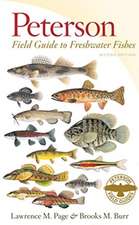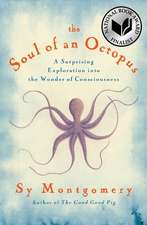Fishing the Great Lakes: An Environmental History, 1783–1933
Autor Margaret Beattie Bogueen Limba Engleză Paperback – 17 aug 2000
From the earliest records of fishing by native peoples, through the era of European exploration and settlement, to the growth and collapse of the commercial fishing industry, Fishing the Great Lakes traces the changing relationships between the fish resources and the people of the Great Lakes region. Bogue focuses in particular on the period from 1783, when Great Britain and the United States first politically severed the geographic unity of the Great Lakes, through 1933, when the commercial fishing industry had passed from its heyday in the late nineteenth century into very serious decline. She shows how fishermen, entrepreneurial fish dealers, the monopolistic A. Booth and Company (which distributed and marketed much of the Great Lakes catch), and policy makers at all levels of government played their parts in the debacle. So, too, did underfunded scientists and early conservationists unable to spark the interest of an indifferent public. Concern with the quality of lake habitat and the abundance of fish increasingly took a backseat to the interests of agriculture, lumbering, mining, commerce, manufacturing, and urban development in the Great Lakes region. Offering more than a regional history, Bogue also places the problems of Great Lakes fishing in the context of past and current worldwide fishery concerns.
Preț: 196.35 lei
Nou
Puncte Express: 295
Preț estimativ în valută:
37.58€ • 38.99$ • 31.41£
37.58€ • 38.99$ • 31.41£
Carte tipărită la comandă
Livrare economică 15-29 martie
Preluare comenzi: 021 569.72.76
Specificații
ISBN-13: 9780299167646
ISBN-10: 029916764X
Pagini: 464
Ilustrații: 49 b-w illus., maps, line drawings
Dimensiuni: 152 x 229 x 33 mm
Greutate: 0.74 kg
Ediția:1
Editura: University of Wisconsin Press
Colecția University of Wisconsin Press
ISBN-10: 029916764X
Pagini: 464
Ilustrații: 49 b-w illus., maps, line drawings
Dimensiuni: 152 x 229 x 33 mm
Greutate: 0.74 kg
Ediția:1
Editura: University of Wisconsin Press
Colecția University of Wisconsin Press
Recenzii
"The discovery, exploitation, and destruction of the Great Lakes fisheries is an important story that should be told, and Margaret Bogue is the first to tell it from such a broad historical, geographic, and environmental perspective. The great strength of Fishing the Great Lakes is the very extensive historical evidence drawn from American and Canadian archives."—Stephen Bocking, Trent University, Ontario, author of Ecologists and Environmental Politics
"Bogue addresses a problem that has caught the attention of no other historian, despite its very basic interest to both the United States and Canada. This book fills a huge void in our understanding of the fisheries of the Great Lakes."—Kurk Dorsey, University of New Hampshire, author of The Dawn of Conservation Diplomacy
"Bogue addresses a problem that has caught the attention of no other historian, despite its very basic interest to both the United States and Canada. This book fills a huge void in our understanding of the fisheries of the Great Lakes."—Kurk Dorsey, University of New Hampshire, author of The Dawn of Conservation Diplomacy
Notă biografică
Margaret Beattie Bogue is professor emerita of history and liberal studies at the University of Wisconsin–Madison. She is the author of Around the Shores of Lake Michigan: A Guide to Historic Sites, also published by the University of Wisconsin Press, and of many other books and articles on fisheries, wetlands, and agriculture in the Great Lakes region of the United States and Canada.
Descriere
Fishing the Great Lakes is a sweeping history of the destruction of the once-abundant fisheries of the great "inland seas" that lie between the United States and Canada. Though lake trout, whitefish, freshwater herring, and sturgeon were still teeming as late as 1850, Margaret Bogue documents here how overfishing, pollution, political squabbling, poor public policies, and commercial exploitation combined to damage the fish populations even before the voracious sea lamprey invaded the lakes and decimated the lake trout population in the 1940s.
From the earliest records of fishing by native peoples, through the era of European exploration and settlement, to the growth and collapse of the commercial fishing industry, Fishing the Great Lakes traces the changing relationships between the fish resources and the people of the Great Lakes region. Bogue focuses in particular on the period from 1783, when Great Britain and the United States first politically severed the geographic unity of the Great Lakes, through 1933, when the commercial fishing industry had passed from its heyday in the late nineteenth century into very serious decline. She shows how fishermen, entrepreneurial fish dealers, the monopolistic A. Booth and Company (which distributed and marketed much of the Great Lakes catch), and policy makers at all levels of government played their parts in the debacle. So, too, did underfunded scientists and early conservationists unable to spark the interest of an indifferent public. Concern with the quality of lake habitat and the abundance of fish increasingly took a backseat to the interests of agriculture, lumbering, mining, commerce, manufacturing, and urban development in the Great Lakes region. Offering more than a regional history, Bogue also places the problems of Great Lakes fishing in the context of past and current worldwide fishery concerns.
From the earliest records of fishing by native peoples, through the era of European exploration and settlement, to the growth and collapse of the commercial fishing industry, Fishing the Great Lakes traces the changing relationships between the fish resources and the people of the Great Lakes region. Bogue focuses in particular on the period from 1783, when Great Britain and the United States first politically severed the geographic unity of the Great Lakes, through 1933, when the commercial fishing industry had passed from its heyday in the late nineteenth century into very serious decline. She shows how fishermen, entrepreneurial fish dealers, the monopolistic A. Booth and Company (which distributed and marketed much of the Great Lakes catch), and policy makers at all levels of government played their parts in the debacle. So, too, did underfunded scientists and early conservationists unable to spark the interest of an indifferent public. Concern with the quality of lake habitat and the abundance of fish increasingly took a backseat to the interests of agriculture, lumbering, mining, commerce, manufacturing, and urban development in the Great Lakes region. Offering more than a regional history, Bogue also places the problems of Great Lakes fishing in the context of past and current worldwide fishery concerns.









